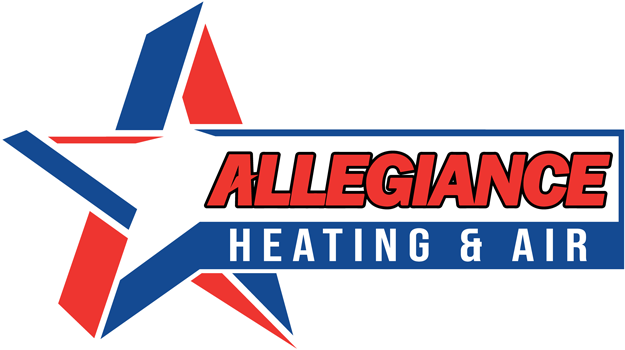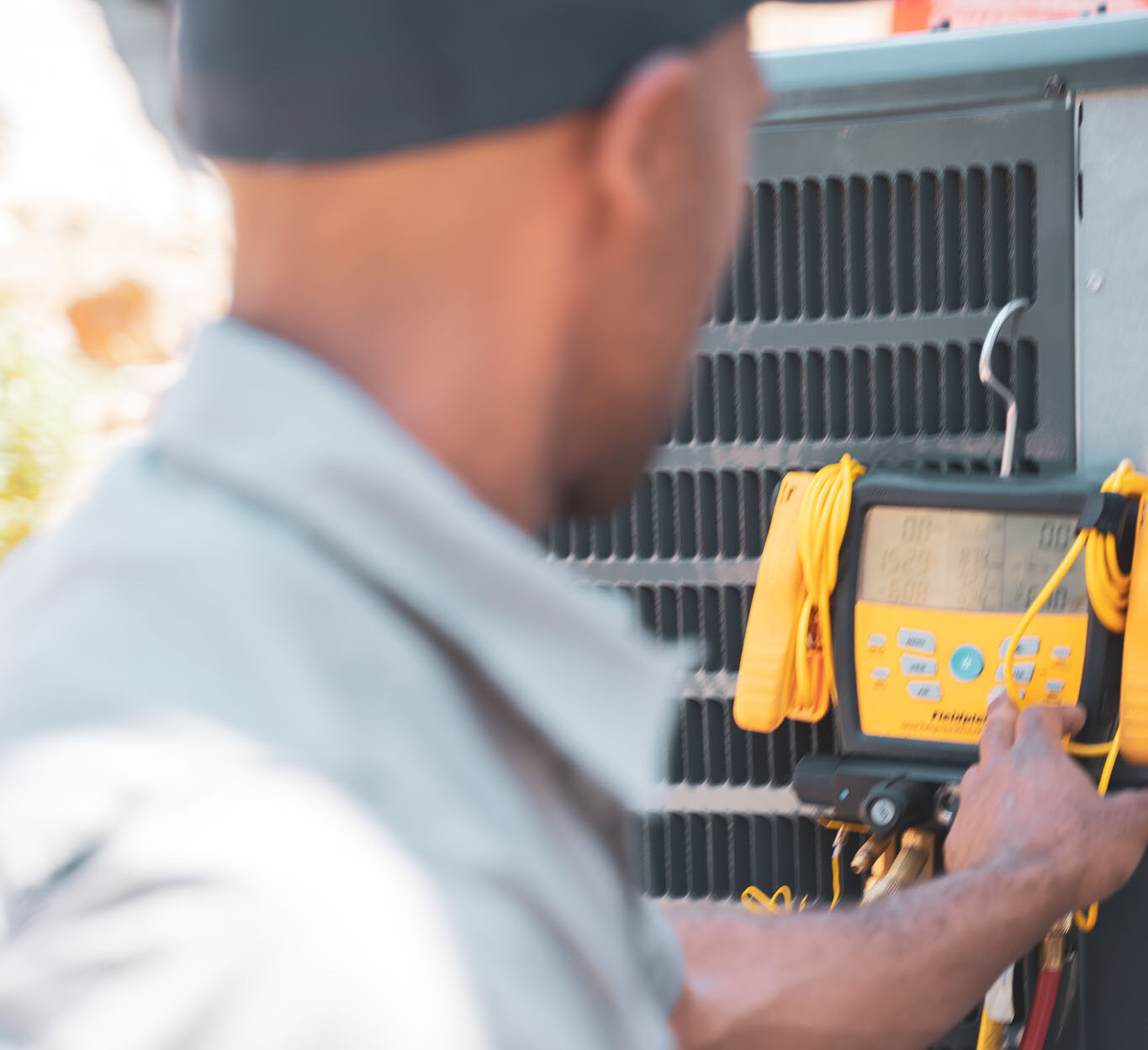
When most people think of air quality, they are thinking of the air quality outdoors. While outdoor pollution levels are a concern, it is important to understand that indoor pollution levels are even more concerning. In fact, indoor pollution levels can be 2-5 times higher indoors than outdoors, and can easily elevate to 100 times higher than outdoor levels.
Because of this, property managers of apartments, condos, and mixed-use buildings need to make air quality a priority. While factors like temperature and lighting are important, indoor air quality (IAQ) plays a crucial role in the health and well-being of building occupants.
Indoor air quality (IAQ) and HVAC (Heating, Ventilation, and Air Conditioning) services are closely interconnected because HVAC systems play a crucial role in maintaining and improving the quality of air inside buildings. Here's how they are tied together:
1. Ventilation
- Role of HVAC: HVAC systems provide controlled ventilation, ensuring the continuous exchange of indoor and outdoor air. This helps dilute and remove pollutants, odors, and carbon dioxide, replacing them with fresh air.
- Impact on IAQ: Proper ventilation reduces the concentration of indoor air pollutants, improving overall air quality. Insufficient ventilation can lead to the buildup of harmful substances, including volatile organic compounds (VOCs) and biological contaminants like mold and bacteria.
2. Filtration
- Role of HVAC: HVAC systems are equipped with air filters that capture dust, pollen, pet dander, and other airborne particles. Higher efficiency filters (such as HEPA filters) can capture even smaller particles, including some bacteria and viruses.
- Impact on IAQ: Effective filtration reduces the levels of particulate matter in the air, which can alleviate allergies and respiratory issues, contributing to healthier indoor environments.
3. Humidity Control
- Role of HVAC: HVAC systems can regulate humidity levels through the use of humidifiers and dehumidifiers. Maintaining optimal humidity levels (typically between 30-50%) is crucial for comfort and health.
- Impact on IAQ: Proper humidity control prevents conditions conducive to mold growth and dust mites, both of which can degrade air quality and trigger allergic reactions and asthma.
4. Temperature Regulation
- Role of HVAC: By maintaining consistent and comfortable temperatures, HVAC systems indirectly support good air quality. Extreme temperatures can exacerbate the emission of VOCs from building materials and furnishings.
- Impact on IAQ: Comfortable temperatures help ensure occupants are not stressed by heat or cold, which can improve overall well-being and reduce the likelihood of respiratory discomfort.
5. Pollutant Source Control
- Role of HVAC: Advanced HVAC systems can include air purifiers and UV germicidal irradiation units to target specific pollutants and pathogens.
- Impact on IAQ: These technologies can actively remove or neutralize contaminants, including certain bacteria, viruses, and chemical pollutants, thereby enhancing air quality.
6. Maintenance and Inspection
- Role of HVAC Services: Regular maintenance and inspection of HVAC systems are crucial to ensure they are functioning properly and efficiently. This includes checking for leaks, cleaning ducts, and replacing filters.
- Impact on IAQ: Well-maintained HVAC systems are less likely to become sources of pollutants themselves. For example, dirty filters and ducts can harbor mold and bacteria, which can then be distributed throughout the indoor environment.
Let's take a closer look at the impact of IAQ on residents, tenants, and employees in these settings, including the importance of regular AC maintenance for a healthier and more comfortable living and working space.
The Invisible Threat
The Environmental Protection Agency (EPA) states that indoor air pollution can be two to five times – and sometimes even more – concentrated than outdoor air pollution. In confined spaces, a variety of pollutants can originate from various sources, creating an invisible threat:
- Biological Contaminants: Dust mites, mold spores, pet dander, and even bacteria and viruses can thrive in indoor environments. These allergens can trigger respiratory problems like asthma and allergies, particularly affecting sensitive individuals.
- Volatile Organic Compounds (VOCs): Emitted from paints, cleaning products, furniture, and building materials, VOCs can irritate eyes, nose, and throat, and contribute to headaches and nausea. Off-gasing from newly renovated units or improperly ventilated storage areas can further exacerbate VOC levels.
- Combustion Products: Faulty gas appliances or fireplaces can release carbon monoxide (CO), an odorless and colorless gas that can be fatal in high concentrations. Improper ventilation from gas stoves or ovens can also contribute to indoor air pollution by releasing nitrogen dioxide (NO2) which can irritate the lungs.
- Radon: A naturally occurring radioactive gas that seeps up from the ground, radon exposure is a leading cause of lung cancer according to the National Cancer Institute. Radon levels can be particularly high in basements or lower floors of buildings with inadequate ventilation.
The Impact of Poor Indoor Air Quality on Health
According to the National Institute of Environmental Health Sciences (NIEHS), studies suggest that exposure to indoor air pollutants can cause a range of health problems, including:
- Respiratory illnesses: Asthma attacks, allergies, and respiratory infections can be exacerbated by poor IAQ. Exposure to mold spores or dust mites can trigger allergic reactions, while irritants like VOCs can inflame the airways and increase susceptibility to respiratory infections.
- Sick Building Syndrome (SBS): A cluster of symptoms like headaches, fatigue, dizziness, and difficulty concentrating can be linked to poor IAQ in buildings. While the exact cause of SBS is unknown, it's believed to be triggered by a combination of indoor air pollutants.
- Reduced Productivity and Cognitive Function: Studies have shown that poor IAQ can negatively impact cognitive function, decision-making abilities, and overall productivity in both residential and office environments [9].
- Long-Term Health Effects: Chronic exposure to indoor air pollutants, particularly radon, can increase the risk of lung cancer and other respiratory illnesses.
The Financial Burden of Poor IAQ
Did you know that beyond the health impact on occupants, poor indoor air quality can also have significant financial implications for property managers? Here's how:
- Increased Tenant Turnover: Residents seeking healthier living environments may be more likely to move out if indoor air quality issues are not addressed.
- Higher Maintenance Costs: Mold growth, caused by moisture problems and poor ventilation, can lead to expensive repairs and remediation.
- Liability Concerns: Property managers could face legal action if tenants' health problems are linked to poor IAQ in their buildings.
The Role of AC Maintenance in Promoting Healthy Indoor Air Quality
While some pollutants may enter from outside, a well-maintained air conditioning (AC) system plays a vital role in improving indoor air quality. Regular AC maintenance by a qualified heating and air conditioning company like Allegiance Heating and Air can significantly benefit the health and well-being of building occupants, here's how:
- Air Filtration: Clean and functioning air filters trap dust, allergens, and other airborne contaminants circulating within the building. Regular maintenance ensures air filters are changed at recommended intervals, maximizing their effectiveness.
- Moisture Control: A properly functioning AC system helps regulate humidity levels. Excessive moisture can create a breeding ground for mold and mildew, which can exacerbate allergies and respiratory problems. AC maintenance ensures proper dehumidification to prevent moisture buildup.
- Improved Ventilation: Many AC systems contribute to ventilation by bringing in fresh outdoor air and removing stale indoor air. Regular maintenance ensures optimal airflow and minimizes the recirculation of pollutants within the building.
Building a Culture of Healthy Living
Beyond regular AC maintenance, property managers can implement additional strategies to create a culture of healthy living and promote good indoor air quality in apartments, condos, and mixed-use buildings:
- Building Maintenance:
- Schedule regular inspections for potential sources of indoor air pollution, such as mold or radon.
- Ensure proper ventilation in kitchens and bathrooms by maintaining exhaust fans and vents.
- Address any leaks or moisture problems promptly to prevent mold growth.
- Consider using green cleaning products with low VOC content for routine maintenance.
- Invest in air purifiers with HEPA filters for common areas or units with specific needs.
- Sustainable Design Features:
- When possible, incorporate design elements that promote natural ventilation and reduce reliance on solely mechanical systems.
- Consider using low-VOC building materials and furnishings during renovations or new construction projects.
- Invest in energy-efficient appliances and lighting to minimize indoor air pollution from combustion sources.
Top Benefits of a Healthy Indoor Environment
By prioritizing indoor air quality, property managers can create a more attractive and comfortable living and working environment for residents, tenants, and employees in their buildings. This leads to several benefits, including:
- Improved Tenant Satisfaction and Retention: Residents are more likely to stay in a building where they feel healthy and comfortable.
- Reduced Tenant Turnover: Lower tenant turnover translates to lower vacancy rates and a more stable income stream for property owners.
- Enhanced Reputation and Marketability: Buildings known for their focus on healthy living can attract environmentally conscious residents and tenants.
- Increased Productivity in Commercial Settings: Improved IAQ can lead to a more focused and productive workforce in office spaces within mixed-use buildings.
- Reduced Long-Term Maintenance Costs: Proactive measures to address IAQ concerns can prevent costly repairs associated with mold remediation or moisture damage.
Partnering for a Breath of Fresh Air. AC Maintenance Near Me
At Allegiance Heating and Air, we understand the importance of indoor air quality for the health and well-being of building occupants. We offer comprehensive AC maintenance services designed to optimize system performance, improve air filtration, and ensure proper ventilation. Our experienced technicians can also provide guidance on additional strategies to promote healthy indoor air quality in your buildings.
Here's how Allegiance Heating and Air can be your partner in creating a healthy living environment:
- Customized Maintenance Plans: We offer flexible maintenance plans tailored to the specific needs of your building, ensuring your AC system receives regular professional attention.
- Skilled AC Repair and Maintenance: Our technicians are qualified to diagnose and repair all types of commercial and retail AC systems, ensuring optimal performance and efficient air filtration. This includes mixed use buildings, condos, retail stores, apartment buildings, and of course we offer residential HVAC services, as well.
- Commitment to Sustainability: We are committed to providing environmentally friendly solutions that promote healthy living and energy efficiency.
By partnering with Allegiance Heating and Air, property managers can create a win-win situation for themselves and their residents or tenants. Improved indoor air quality provided by regular hvac maintenance translates to a healthier environment, increased tenant satisfaction, and a more positive return on investment for your property. Contact us today to discuss your specific needs and discover how we can help you breathe easy.
For more information about Indoor Air Quality, visit these sites!
[https://www.epa.gov/indoor-air-quality-iaq https://www.cancer.gov/about-cancer/causes-prevention/risk/substances/radon/radon-fact-sheet https://www.niehs.nih.gov/health/topics/agents/indoor-air

8733 N Magnolia Ave #204
Santee, CA 92071
619-449-2469
marketing@allegiancehvacsd.com
Monday – Friday: 8:00 AM – 5:00 PM


